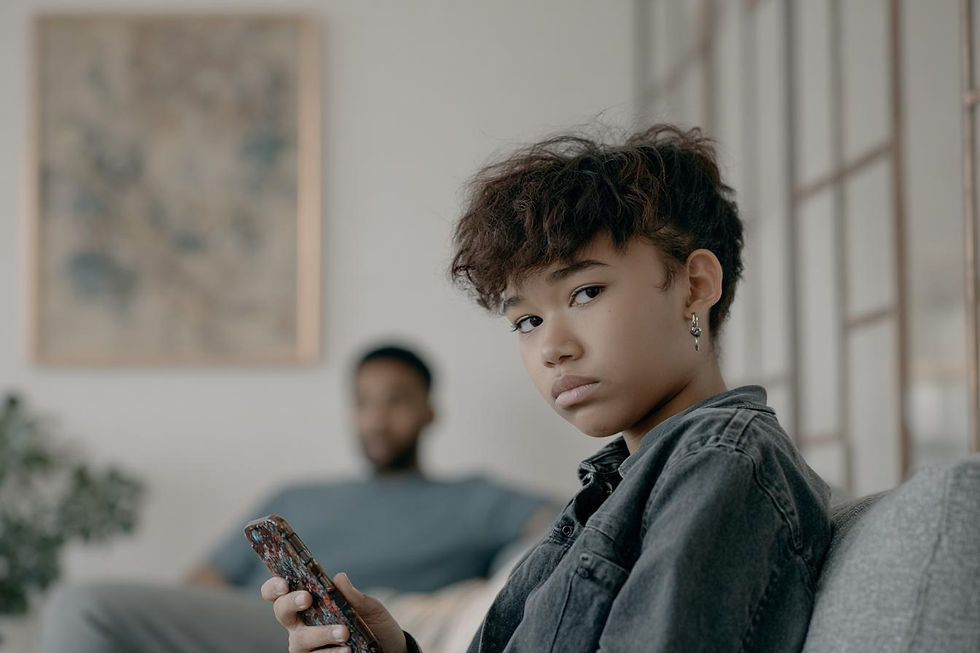Memphis Schools Go Phone-Free: What This Means for Teen Mental Health
- Alliance Healthcare Services

- Aug 8, 2025
- 3 min read

You've probably seen the headlines. Memphis-Shelby County Schools just voted to ban cellphones during school hours, joining a growing wave of districts across the country making similar moves. And honestly? The research suggests this could be exactly what our teens need.
The Numbers Tell a Story
Here's something that might surprise you: nearly half of American teenagers are now online "almost constantly." We're talking about a generation that's never known life without smartphones, and the mental health data is starting to paint a concerning picture.
Recent studies show that teens with problematic smartphone use are twice as likely to experience anxiety and depression. When you dig deeper into the research, you see patterns emerging around sleep disruption, attention difficulties, and even changes in brain development during these crucial teenage years.
Why This Matters for Our Community
As mental health professionals, we see these impacts firsthand. The teens walking into our offices sometimes struggle with sleep issues, attention problems, and anxiety that didn't exist at these levels just a decade ago. While smartphones aren't the onlyy factor, they're playing a significant role in how young people's brains are developing.
Research shows that smartphone use creates measurable disruption to circadian biology, with evening blue light exposure suppressing melatonin production and shifting sleep patterns. And everyone knows teens need their extra sleep.
Even more concerning... Studies reveal that 90% of research examining screen time and sleep shows adverse associations, primarily through shortened duration and delayed timing.
Tell me some good news. Adolescent brains are incredibly adaptable. When researchers studied what happens when teens reduce their phone use, they found significant improvements in stress levels, sleep quality, and overall wellbeing within just a few weeks.

The Adjustment Won't Be Easy
Let's be real about this change. Many teens have never experienced a full school day without their phones. Some will feel anxious, disconnected, maybe even a little lost at first. That's completely normal.
Think about it from their perspective. These devices have become a primary way of staying connected, managing stress, and even regulating emotions. Taking that away, even temporarily, is going to create some bumps in the road.
Supporting Teens Through the Change
If you're working with adolescents or have teens in your life, here are some ways to help them navigate this shift:
Acknowledge their feelings. Don't dismiss their anxiety about being phone-free. It's real, and it matters to them. Be honest, adults also feel a little anxiety without their phones too.
Focus on the benefits. Help them notice improvements in their ability to focus, sleep better, or connect face-to-face with friends.
Practice phone-free time at home. Make it a family effort, not just a school rule. Set the example, especially during conversations.
Develop new coping strategies. What can they do when they feel stressed if they can't reach for their phone?
So What's Next?
At Alliance, we're watching these developments closely because we know how crucial this teenage period is for mental health. The interventions and support systems we build now can make a lasting difference in young people's lives.
As we prepare to open our new Children and Youth Crisis Wellness Center, we're committed to staying ahead of these emerging challenges. Because when it comes to supporting our community's mental health, timing matters.
The phone ban might feel like a big change, but it could be exactly the reset our teens need to rediscover focus, connection, and peace of mind.
Want to stay connected? Follow us for updates about our upcoming Children and Youth Wellness Center, and subscribe to our newsletter for the latest insights on supporting mental health in our community.




Comments